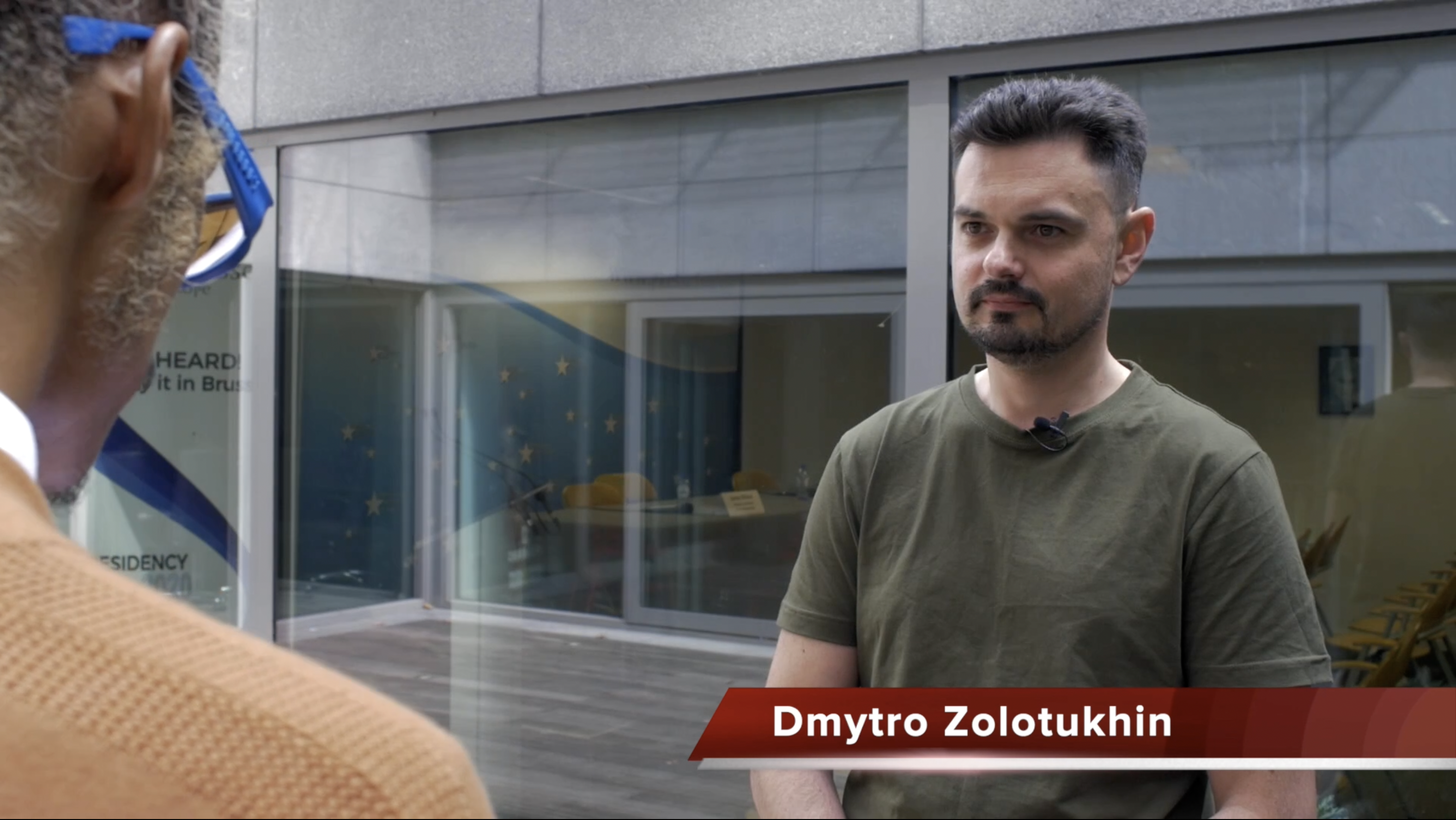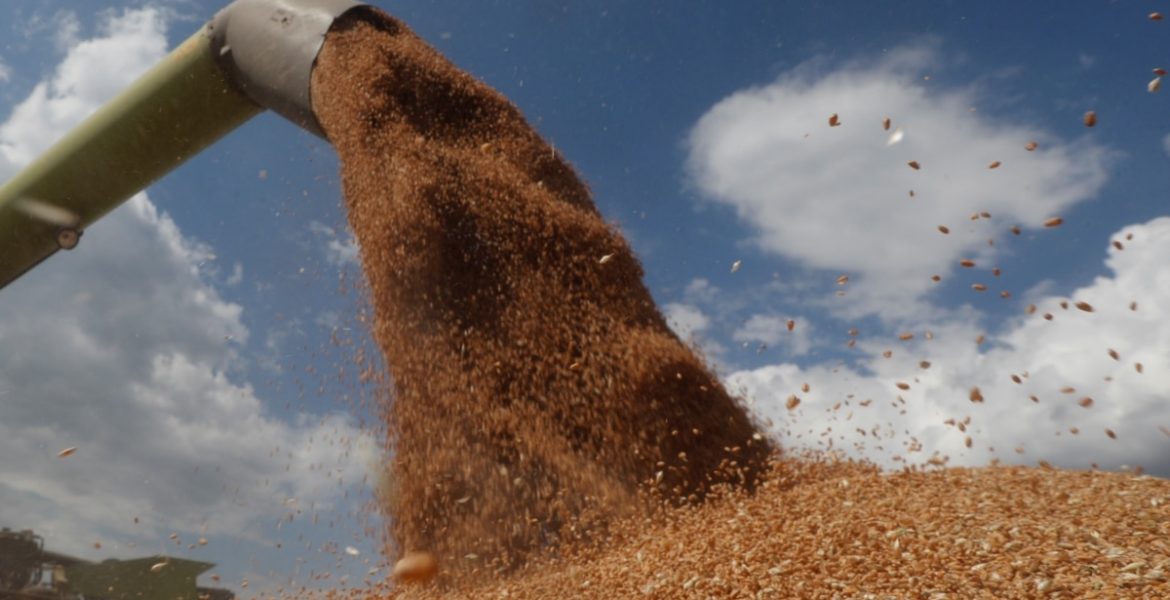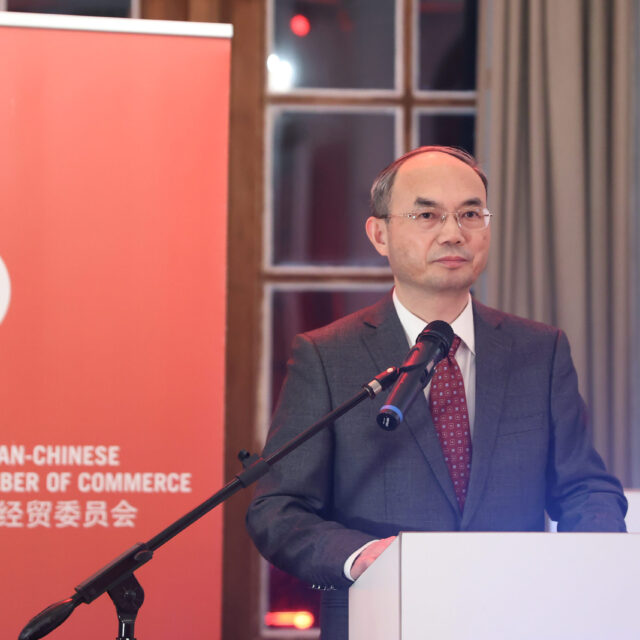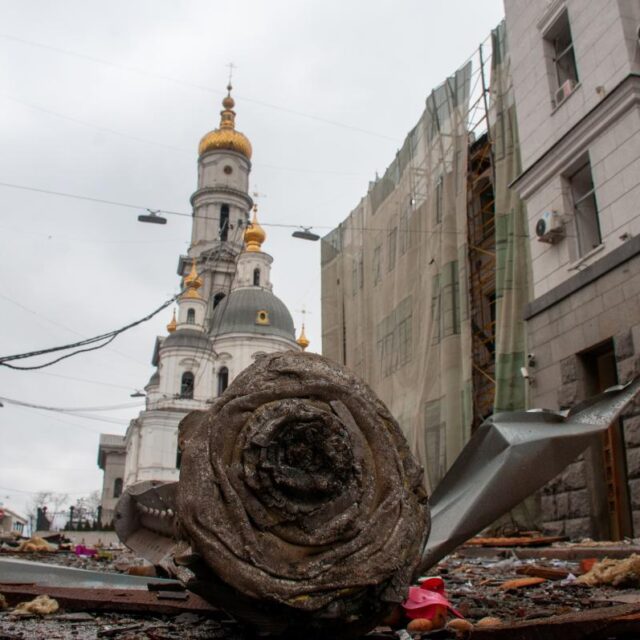Russia has plundered an estimated 650,000 tonnes of Ukraine wheat since the start of the current war, it has been claimed.
The claim was made by a leading Ukrainian activist, Dmytro Zolotukhin, at a conference in Brussels.
Zolotukhin, Director of the Institute for Postinformation Society in Ukraine, appealed to the West to “do more” to halt the “theft” of Ukraine’s grain and wheat.
The Kyiv-based expert said there was evidence that Russian forces in occupied areas of Ukraine have been systematically stealing grain and other produce from local farmers.
Similar claims were made recently after an investigation by the BBC.
Farmers whose land is now in Russian-occupied territory have been hit, he said in an interview with this website.
He accuses them of stealing grain “on an industrial scale.”
Some estimates put the “theft” as high as 800,000 tonnes but he says it is more likely to be slightly less.
Even so, he says it is still the equivalent of a whole year’s grain and wheat production of a country like Finland and has cost Ukraine about $200 million.
“This gives you an idea of the scale of it all,” said, Zolotukhin, who was deputy minister for information policy in Ukraine from 2017 to 2019.
After being “stolen” from Ukrainian fields, the grain and wheat and other agricultural products are transported either into Russia or down to ports which are occupied by the Russians, he said.
“They transport it to places like Kerch or Sevastopol [ports], then they load Ukrainian grain on Russian ships and go to the Kerch Strait and the Black Sea.
The ships then switch off all tracking devices, making it impossible for them to be monitored.
Ships have then often headed on to Syria, Lebanon or Turkey.
When their trackers come back online, the ships are sailing south and many report a lower depth in the water, suggesting they’ve taken on cargo during the blackout.
He adds this is then exported with Russian certificates, saying that it’s Russian grain.
“The Russians are using fake documents to pass the grain or wheat off as Russian,” he said.
“The whole thing, and it is theft of course, has cost Ukraine tens of millions of dollars.”
The “crimes” first came to light some months back but, he says, have intensified during the current harvest in Ukraine.
“It is the peak period for grain exports or, in normal times, would be.”

Zolotukhin, whose group monitors misinformation and fake news, said the ability of the Ukrainian government to act was hampered as much of the “theft” was taking place on agricultural land that is currently Russian controlled, much in the east and south of Ukraine. His interview can be viewed here.
“This is very productive agricultural territory – almost unique – for everything from wheat and grain to water melon. The Russians have even been stealing water melons from Ukrainian land.”
Additionally, he says Russian troops are using existing infrastructure, such as roads and ports, to export grain and wheat from Ukraine.
There is also evidence, he said, of troops paying Ukraine farmers well below the going rate – $100 instead of $1,000 – for grain and wheat.
“In other words, they are paying what they want to pay.”
He added, “All this is a crime, a violation of international law.”
When asked what can be done to stop such alleged actions,he said, “One obvious solution is to stop buying stolen grain.”
But he says the most effective action is for the enforcement of international maritime legislation.
“We are calling on nations not to accept ships which may be carrying stolen grain from Ukraine and for the authorities to have the means to step up checks on such vessels,” he said.
“Ukraine’s ability to act on this is limited as much of the theft is taking place on Russian-controlled territory so it is up to the international community to act.
“We and others have very carefully and closely documented what is going on and can provide direct and verifiable evidence. We have put the evidence online and published it.
“Maritime security exists to put a stop to such actions so this must be enforced in international waters.”
“More political pressure must be brought to bear to put a stop to this. It is happening on an industrial scale.”




